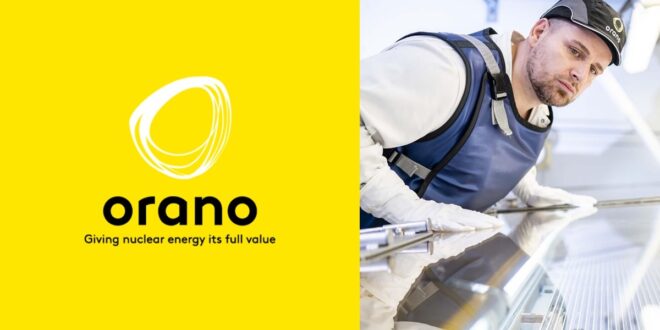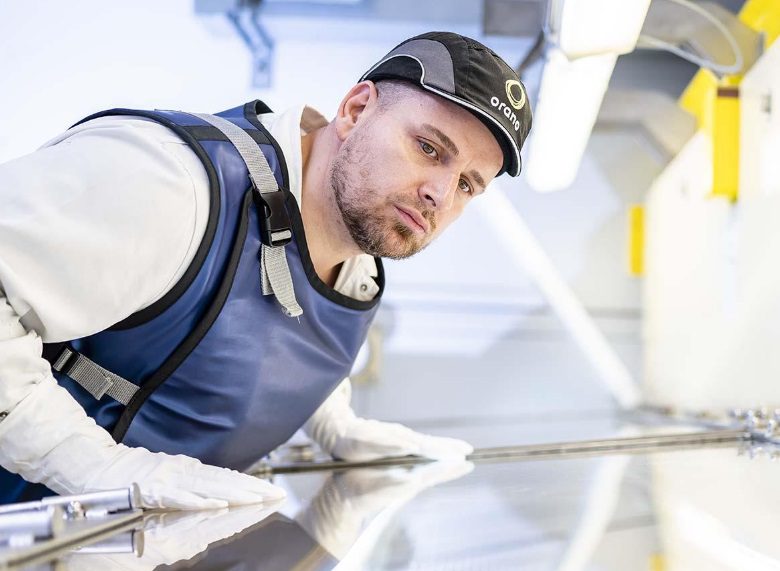According to an article by the Financial Times released today, France’s state-owned nuclear company Orano is weighing a sale of its uranium holdings in Niger, a decision that could mark a turning point not just for the company, but for a big chunk of the global nuclear supply chain. The possible exit comes in the wake of a military coup in Niger last year, which has led to mounting pressure on Orano’s operations in the country.
It’s part politics, part strategy. And it’s not entirely surprising.
Operational Pressures, Strategic Repositioning
After Niger’s military took control in 2023, Orano found itself on shaky ground. The junta went straight after the French firm’s assets, seizing the Somair mine, which Orano owned 63% of, and later revoking the Imouraren permit. That deposit, by the way, is one of the largest untapped uranium sites in the world.
There wasn’t much left to do. Orano launched legal action and started exploring options to get out.
But this isn’t just a reaction to a crisis. Orano has been gradually moving away from Niger for a while. It’s been pouring resources into other uranium projects in places like Mongolia, Uzbekistan, Namibia, Kazakhstan, and Canada. The idea is to reduce exposure to political risk, sharpen its operational focus, and put capital to work elsewhere, including a planned €1.8 billion investment to ramp up enrichment capabilities. Annual capex remained steady in 2025 at €1.5 billion, expected to rise to €2.0 billion starting in 2026.
“We can eventually be independent from Niger,” Orano CEO Nicolas Maes said in February 2025.
That future may be closer than expected.
Financial Impact Starting to Show
The numbers tell part of the story. In 2024, Orano reported €1.50 billion in mining revenue (on total revenue of €5.87 billion), up almost 14% compared to 2023. But operating income from mining dropped by €74 million to €122 million, mostly due to losing control of its Niger subsidiaries. EBITDA still held up, thanks to firm uranium prices, but the Niger write-down and capital spending plans have started to weigh on cash flow.
Valuing the Niger assets is tricky. Politically, the environment is volatile, and buyers face major risks. But these are high-grade deposits, uranium oxide content between 0.3% and 0.5%, which is above the global average. That matters. State-backed buyers from Russia or China are expected to show interest, though the risk premium here is steep.
Deals in the uranium space have hit valuations in the hundreds of millions. Whether that holds up in Niger is another question.
Geopolitics, Energy Markets, and a Nuclear Resurgence
All of this is happening as nuclear energy is making a bit of a comeback. The International Energy Agency says nuclear power growth will hit a record by 2025. Countries are chasing decarbonization targets, and energy security is now a top priority. Uranium prices are still volatile, but elevated. And with ongoing supply issues in places like Kazakhstan, the market is tight.
Western governments, meanwhile, are scrambling to cut back their dependence on Russian uranium. That puts Niger in a strange position, it holds about 5% of the world’s uranium production. Historically, it’s been a key supplier to France. But the junta now seems more interested in working with new partners like Russia and China, countries that aren’t as bound by Western rules or non-proliferation constraints.
Any deal involving Orano’s assets will be closely watched. Non-proliferation rules, IAEA oversight, and the broader regional security picture all come into play. With Russian mercenaries operating in the region and talk of uranium-for-weapons scenarios, this is not just another mining asset changing hands.
A Complicated History in Niger
Orano, formerly Areva, has operated in Niger for decades. The Somair and Imouraren projects have used a mix of in situ leaching and conventional milling to extract uranium. It’s not easy stuff. And right now, Orano is running on fumes, using whatever stocks it has left to pay employees and keep the lights on at its sites.
France’s nuclear ambitions have been tied to Niger since the 1970s, but it’s never been a balanced relationship. There’s a long history of controversy over economic benefits, environmental damage, and who gains from the industry. The current standoff fits into a broader shift, as Niger tries to reclaim more control over its resources and reposition itself globally.
There’s also a clean-up problem. Radioactive waste, threats to water supplies, local community concerns, and any new buyer will inherit all of that. It’s not just a mining deal. It’s a social and environmental one, too.
What Comes Next?
If Orano pulls out, other players are waiting. Canadian miner Global Atomic already has deals lined up with European customers. Chinese and Russian firms are circling. The broader trend is clear: governments want more control over resources, and buyers want to hedge against over-reliance on any single supplier.
What happens in Niger won’t stay in Niger. This deal, if it goes through, could reshape how the nuclear industry handles resource risk, national control, and global energy transitions. The assets are valuable, no question. But the risks are on another level.
Only a certain kind of buyer, probably a state-backed one with a high tolerance for geopolitical mess, will step up. For Orano, it’s a pivot. A move away from legacy ties and toward something new, more diversified, hopefully more stable.
Whatever the final terms, this won’t be a quiet transaction. The fallout could ripple across the nuclear sector and global energy markets for years.


